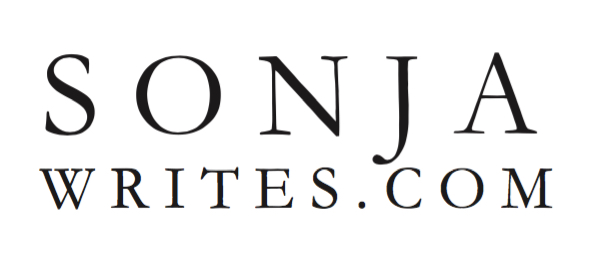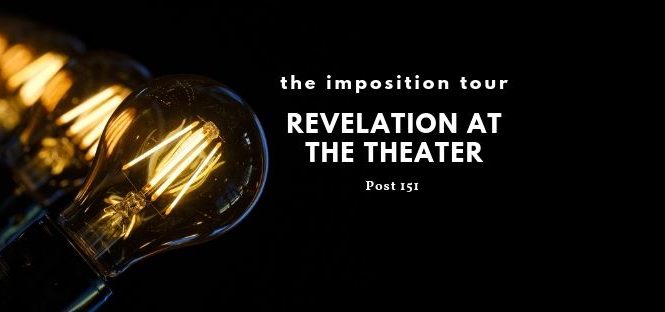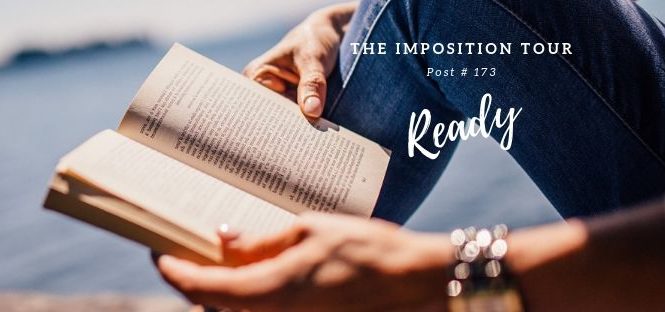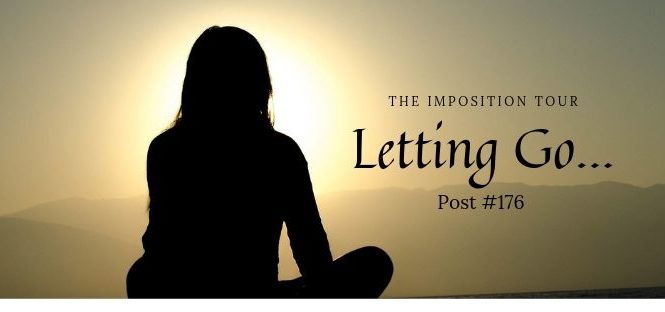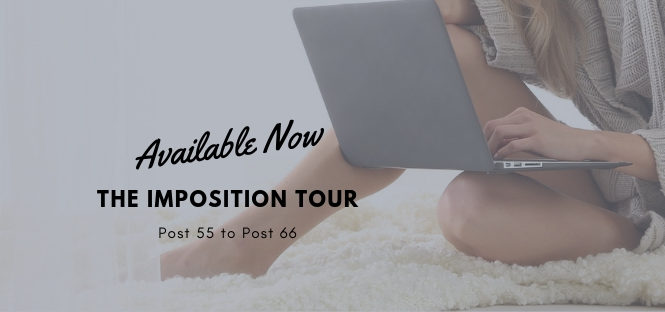Aside from spending time embarrassing Vanessa’s youngest son, Richard — who lived with me for a year when he was in high school, and felt an awful lot like he was my son, too — our first few days in London were just what I needed.
But it was our evening at the theater that ended up lubricating my soul with the best medicine of all: laughter.
Vanessa got us tickets to see The Book of Mormon, and before we went to the play, the three of us had a cozy dinner. Richard told me he’d already seen the play with his girlfriend’s family, but he hardly got any of the references or jokes. So over a meal of real fish n’ chips, I shared a few things about what I had observed about Mormonism while living in Salt Lake City.
The first thing I did was admit to Vanessa and Richard just how conflicting many of the Mormon (also known as, Latter Day Saints) beliefs are for me. I deeply respect anybody’s faith — even if I don’t understand it or believe in it. But the Mormon faith has roots in my faith — Christianity — and so I when things that I learned about what Mormon’s believe didn’t square up with my understanding of the Bible, I often felt confused.
I remember telling Vanessa and Richard that I didn’t mean to judge (and I’m restating that again here because it’s completely true! And, I’m not trying to diss the Mormon faith or the people who are in it — especially those Mormon friends in my life that I deeply love!) But, the bottom line is, I just don’t believe in the Mormon/LDS religion after thoroughly considering it and trying to unpack the Mormon beliefs for myself.
So I shared some of my observations about what I knew Mormons believe, and some of my personal confusion over why they believe it.
For one thing, I explained how I knew that faithful Mormons don’t drink “hot drinks” — which includes alcohol (which is pretty clear), and only coffee or black tea. Practicing Mormons could drink hot chai teas and hot chocolate — so clearly the rule didn’t turn out to be a heat issue or an issue with caffeine. But it was a specific coffee/black tea situation, apparently. Sam admitted to being a naughty backsliding Mormon because he liked “dirty chai lattes,” which had espresso coffee in the chai. His choice of “hot drink” seemed like a daring compromise that Sam was willing to make inside of his admittedly nebulous faith — and one that we talked about quite often.
But when I asked Sam to explain the coffee/tea ban situation to me, he said he sincerely couldn’t explain it to me because I’m not Mormon. It’s just what the Prophet Joseph Smith had mandated for his followers because abstaining from coffee, tea, alcohol, and tobacco would keep the body and mind strong, and so you didn’t drink those things if you wanted to be a good Mormon.
Part of that mandate does make sense to me. What we eat, drink, and smoke does have an impact on our minds and bodies, no doubt. However, the “hot drink” topic was an honest-to-goodness stumper for me because I saw many Mormons and their children drinking Monster Energy Drinks and diet sodas — which aren’t “hot drinks” by definition, but rather, are chemically-based, caffeinated substances that are arguably worse for your body than coffee is… Right? I thought the reason for Joseph Smith’s mandate to abstain from specific drinks is to keep the body and mind strong, right?
Well… Maybe not.
As it turns out, more recent rules allowing the LDS faithful to consume Monsters and diet sodas were included in provisions made by the “latter-day saints,” Sam explained. So nowadays, those drinks are OK to drink — even though they could be harmful to the body or mind. So the rules about “hot drinks” clearly weren’t set in stone — which only confused me even more, I suppose. But Sam said the coffee ban was a rule that devout Mormons never question, and Sam said he didn’t drink espresso or coffee-like drinks in front of his parents because it would be such an issue.
Looking back on it now, I realize this might be why the “Bendy Twisty Coffee Shop” — and my own winter hippie hang out — always felt so tense and tricky. For people like Sam, drinking coffee or tea is a bigger choice than it is for me. And, there’s no such thing as “conflict-free coffee beans” for a Mormon. Drinking coffee is a deliberate decision to partake in a religiously banned substance — which in turn could make a statement to the moral majority about the status or the quality of the drinker’s faith.
I might have it all wrong… But, I spent a lot of my time in Utah wondering about that.
I also gave Richard and Vanessa a few details that I had learned about the founder of the Mormon Church, Joseph Smith — who is also believed by the faithful to be the inspired author of The Book of Mormon.
I admitted that most of what I knew about why Mormons believe in him I couldn’t fully understand. But, the active Mormon’s that I personally knew raised amazing families and seemed to be really good stewards with their money, and many of Smith’s teachings seemed to keep these people on the “straight and narrow” — much like the Bible does for Christians like me.
But for me, I simply couldn’t understand how a belief in a man with such a sketchy and checkered past could bring me closer to God, or better define my beliefs with his book than the Bible or my personal relationship with Jesus does. Only The Book of Mormon validates the role of Joseph Smith in that religion, so when any of my Mormon friends would try to evangelize me into their faith, I just couldn’t buy into it.
But the actual Book of Mormon, Joseph Smith, and all of the Latter Day Saints and their modern-day prophets are central to every part of life when you’re living in Salt Lake City, Utah. The Church influences absolutely everything, and for me, the stunning Temple at the heart of the city had a way of casting an eerie glow over everything and everyone who didn’t embrace the LDS teachings. So trying to respectfully unpack my understanding of Mormonism was a big part of my existence at that time.
I felt like there was no way to avoid the impact of the Church while living in Salt Lake, and so for me, the contradictions in their beliefs troubled me, and created a darkness in my spiritual process that often made me struggle during a time when I was already struggling with so many other things in my life. I never once doubted my own faith while I lived in Salt Lake City… However, at times, I doubted that God was as easy for me to spot when I was searching for him in that very depressing town.
But when Vanessa, Richard, and I took our seats in the theater, and the curtain went up on the play, I remember immediately laughing so hard. I simply couldn’t stop myself from letting go of everything I was trying to contain inside of me that didn’t make sense about my life in Utah. Everything I was trying to keep together or to respectfully consider that didn’t square with my own beliefs, seemed to find an escape inside of my laughter.
The play was very sharp and positively brutal. It was based in that raw kind of humor that starts with nervous laughter over the hypocrisy of a certain cultural, religious, or moral taboo, and then ends in an endorphin release that feels so darn good.
However, there were a few parts in the play that weren’t funny to me at all. I actually cried in one part because the scene depicted an ugly betrayal of trust. The scene went too far, in my opinion, and I remember feeling deeply saddened by how the people behind religions of any kind can spiritually abuse others when they start to attempt to manipulate or control a person’s free will, or someone’s very personal connection to God.
So that part of The Book of Mormon play felt deeply shameful and awful to me.
But when we left the theater that night, the three of us were punch drunk on laughter, and I felt positively free for the first time in a very long while. I wasn’t sure why it felt so good to laugh that much about the complex mixture of faith and culture that I’d been experiencing in Salt Lake City, but I think maybe I’d just discovered a different way to unravel my feelings that night.
When Vanessa and I got back to our room at The Bentley, we talked for a long time about the layers of sadness I was harboring about what I didn’t understand about my life at that time. There were so many things that I sensed were happening in the spiritual realm that I couldn’t quite identify; but for me, it was the seemingly insignificant little breaches in the Mormon moral code that dominated the city I lived in that complicated my overall understanding of things in my life the most.
Clearly, my faith is the most powerful part of my life, and it’s central to who I am as a person.
So I realize that there are people out there who could look at my faith and question it the way I questioned the Mormon religion. I get that, and I can roll with it; and, I can even love and respect you if you don’t believe in the version of religion that more-or-less aligns with the freedom I’ve found in my faith.
I guess this is because, for me, religion is the component of faith that can be easily judged and scrutinized – but spirituality? That’s much more difficult to qualify, and that’s the part of a person’s faith that I believe is sacred and completely off-limits to other human beings. But while I was living in Utah, there was a constant force that was pushing and pulling on the spiritual roots of my faith, and it felt very much like an angry battle was being waged all around me.
A few days after we saw the play, I wrote in my journal about the play and the feelings and revelations it added to the mix of my thoughts. And as soon as I started writing, it became clear to me that so much of what I was fighting against while I lived in Salt Lake City was spiritual. It wasn’t my belief or disbelief in Mormonism that mattered, but rather, it was the battle for my real spiritual Truth that was at stake.
I felt like the play helped me more carefully examine my own faith, and to me, that was incredibly empowering. And even though I did write in my journal about how sorry I was that some of the play felt slanderous and wrong, it also struck me how much easier it is was for me to cull some new Truth out of that fiction because I could see it so clearly against the backdrop of the cultural references, the ugly ironies, and the hypocrisies that every believer of every religion must confront in this world.
I also wrote to Roy about the impact the play had on me.
I emailed him the pilot and the rest of the content for my series the day before I left Utah, and it felt amazing to send it off to him. It was a huge sense of accomplishment. But it also felt like a relief to get it out of my hands. It gave me the “event” I needed to fully step away from Sam, and, I knew I needed to surrender my writing and everything else in my life for a little while if I was going to find my sanity again.
Roy texted me a short message the day before I left for England to confirm that he got all of my content. The only detail he gave me was that he thought the opening teaser of my pilot was “pure genius,” and that he was preparing the rest of his team for a full review while I was away.
But after seeing The Book of Mormon, I couldn’t stop myself from reaching out to Roy to tell him how the play helped me work out some important thoughts in my mind. I needed Roy to understand how desperately I wanted to be a part of the storytelling world. I’d been inspired and challenged by a storyteller’s version of beliefs — and I wanted to create something that useful and challenging with my own stories. I wanted to write content that could provoke people to think about the most important things in life after being triggered by a relevant and perhaps even polarizing narrative.
I told Roy how I believe storytelling is the best way to stimulate revelations that people can question with a safe and authentic spectrum of emotions, thoughts, beliefs, and ideas. Roy emailed me back right away. He told me he believed I already was that kind of storyteller, and he, for one, fully believed in me.
And for the first time in a long while, I was starting to see my own beliefs aligning with the real me once again.
[By the way, the irony isn’t lost on me that I found real healing in a play! But I still don’t believe watching the movie The Secret Life of Bees would’ve helped Lou one bit in the early stages of The Imposition Tour!]
